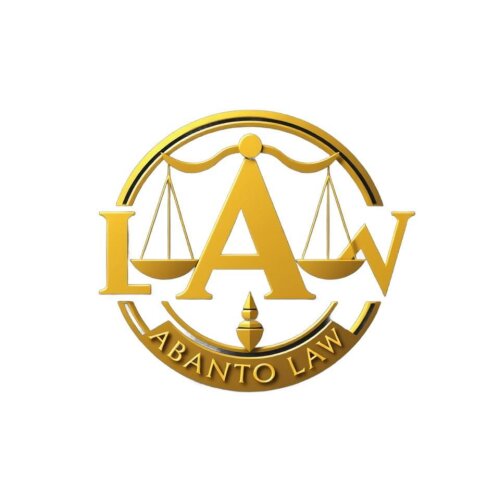Best Professional Malpractice Lawyers in Philippines
Share your needs with us, get contacted by law firms.
Free. Takes 2 min.
Or refine your search by selecting a city:
List of the best lawyers in Philippines
About Professional Malpractice Law in Philippines
Professional malpractice in the Philippines involves negligent or improper conduct by a professional in their field of expertise, resulting in harm or damages to a client or third party. The concept mainly applies to professionals such as doctors, lawyers, accountants, and engineers. Philippine law provides measures to protect clients from substandard services by professionals through avenues like civil suits for damages, administrative complaints, and disciplinary actions by professional regulatory boards.
Why You May Need a Lawyer
Seeking legal assistance in cases of professional malpractice can be crucial for several reasons. If you have experienced injury, financial loss, or any adverse consequences due to the negligence or incompetence of a professional, a lawyer can help you understand your rights and legal options. Common scenarios include medical malpractice, legal negligence, accounting errors, and engineering oversight. Having a lawyer can also aid in navigating complex legal procedures, collecting evidence, and providing representation in court or during settlement negotiations.
Local Laws Overview
The Philippines has specific laws and regulations that govern professional standards and liability. Key legal frameworks include the Civil Code, which allows for claims of damages due to negligence, and specific professional codes of ethics that hold professionals to certain standards. The Professional Regulation Commission (PRC) oversees the licensing and regulation of professionals. The Code of Professional Responsibility and other sector-specific guidelines also dictate the conduct expected from professionals.
Frequently Asked Questions
What qualifies as professional malpractice?
Professional malpractice occurs when a professional fails to meet the standard of care expected in their field, leading to harm or injury to a client.
How long do I have to file a malpractice claim in the Philippines?
Typically, the prescriptive period for filing a malpractice lawsuit varies; however, it generally ranges from one to four years depending on the type of malpractice and the discovery of the harm incurred.
What evidence is needed to prove malpractice?
Key evidence includes documentation of the professional relationship, expert opinions demonstrating the breach of standard care, records showing the harm done, and proof of financial or personal loss.
Can I settle a malpractice claim out of court?
Yes, many malpractice claims are resolved through settlements out of court, allowing parties to avoid lengthy litigation processes and reach mutually agreeable terms.
What role does the PRC play in professional malpractice cases?
The PRC handles administrative complaints against professionals and can impose sanctions or revoke licenses if malpractice is proven.
Is it possible to sue professionals who are not licensed?
Yes, unlicensed professionals may also be subject to legal action for providing services without the necessary credentials, especially if their services result in harm or loss.
Are malpractice claims public record in the Philippines?
Court cases and some administrative decisions may be public record, but settlements are typically private unless stipulated otherwise.
Do I need an expert witness in a malpractice case?
Expert witnesses can play a crucial role in establishing the standard of care and demonstrating how it was breached in malpractice cases.
What damages can I claim in a malpractice suit?
Claimants may pursue compensatory damages for actual losses, pain and suffering, or potentially punitive damages in cases of gross negligence.
Can I handle a malpractice claim without a lawyer?
While it's possible, having a lawyer is advisable due to the complexity of malpractice laws and the need for expert assessment and legal representation.
Additional Resources
For further assistance on professional malpractice in the Philippines, individuals can contact the Professional Regulation Commission (PRC), seek advice from the Integrated Bar of the Philippines (IBP), or consult with organizations such as the Philippine Medical Association or the Philippine Institute of Certified Public Accountants, depending on the professional body involved.
Next Steps
If you suspect malpractice, it's important to gather all relevant information and documentation related to your case. Next, consider consulting with a qualified attorney who specializes in malpractice to evaluate your claims and guide you through the process. You can inquire with local law firms, check for referral services by the IBP, or look for legal aid clinics if financial resources are limited. It's significant to act within any statutory time limits and ensure your rights are adequately protected.
Lawzana helps you find the best lawyers and law firms in Philippines through a curated and pre-screened list of qualified legal professionals. Our platform offers rankings and detailed profiles of attorneys and law firms, allowing you to compare based on practice areas, including Professional Malpractice, experience, and client feedback.
Each profile includes a description of the firm's areas of practice, client reviews, team members and partners, year of establishment, spoken languages, office locations, contact information, social media presence, and any published articles or resources. Most firms on our platform speak English and are experienced in both local and international legal matters.
Get a quote from top-rated law firms in Philippines — quickly, securely, and without unnecessary hassle.
Disclaimer:
The information provided on this page is for general informational purposes only and does not constitute legal advice. While we strive to ensure the accuracy and relevance of the content, legal information may change over time, and interpretations of the law can vary. You should always consult with a qualified legal professional for advice specific to your situation.
We disclaim all liability for actions taken or not taken based on the content of this page. If you believe any information is incorrect or outdated, please contact us, and we will review and update it where appropriate.
Browse professional malpractice law firms by city in Philippines
Refine your search by selecting a city.
















